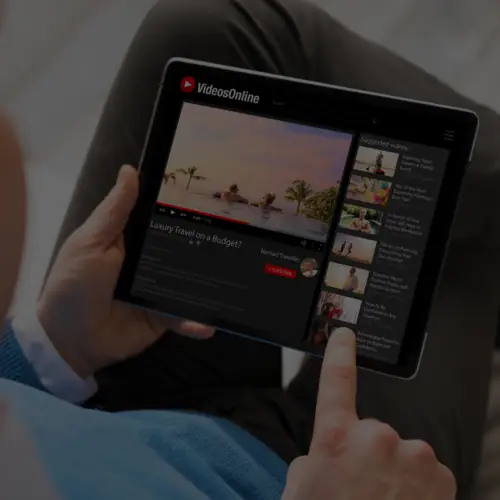19 Jan Why Sports is the Ultimate Industry for Social Media
There are many industries (tech, clothing, food & beverage) that have potential to take advantage of social media but none of them can hold a candle to sports. I worked for several years in this industry and it is a social media marketers dream for 3 simple reasons.
Content: There is always new content. Stats, players, coaches, cheerleaders, mascots, team history, and fans all provide a constant stream of fresh content. Every professional sports team and college athletic department has enough content to post at a Mashable-like rate.
Fans: Sports teams have an extremely dedicated fan base that constantly craves information and loves to interact. They want to be a part of the team. It’s a “community” in the truest sense of the word that has existed offline for decades. Sports fans are the only consumers that refer to themselves as “us” and “we” when talking about a product.
Money: Most importantly, said fans don’t mind spending money on the thing they love. Just take a look at ticket prices.
So, what’s been done? The NFL’s Indianapolis Colts have their own social network, MyColts.net, and it should serve as the gold standard. Created by Coyle Media, the social network is essentially a Facebook for Indianapolis Colts fans. When it launched in 2006, more than 40% of all traffic to Colts.com, the team’s homepage, came from MyColts.net.
It succeeds by offering exclusive content such as tickets, merchandise, and the chance to meet players. It is largely self-policed and awards members for participating through commenting, writing blog posts, and recruiting their friends. How businesses on Facebook must ache to show off their top recruiters and have their fans compete to become the top ambassador.
Sports teams have also taken advantage of location-based marketing. During the 2009-2010 season in which the NBA’s New Jersey Nets went a disappointing 12-70, marketers looked for a way to get butts in the seats. They partnered with Gowalla and dropped 250 pairs of tickets. They reported a 15.2% redemption rate and although those attendees paid nothing for the tickets, the Nets saw an increase in sales in merchandise and concessions.
I know what you’re asking at this point. If the sports industry is such a gold mine for social media, why haven’t I heard more about it? Well, as the economic recession stimulated the growth of the Internet and social media in other industries, the sports industry focused heavily on ticket sales and TV deals.
With the ability to watch whatever you want whenever you want, sports remains something that people want to see live. Nine of the ten highest rated television broadcasts of 2009 were NFL games or in some way related to the Super Bowl. Advertisers have recognized that commercials during sporting events are something they can count on people watching.
It seems crazy that social media would get put on the backburner with all the success it’s shown. But if you work for a sports team, you will quickly figure out that bringing in money through sponsorships and ticket sales is priority one, two, and three. In the past few years, you could’ve explained for hours how a blog and Facebook page could bring a team an unprecedented amount of fan interaction only to hear, “That sounds great, but how is it going to make us money?” Financial justification and showing a direct return on investment, which is notoriously difficult in social media, prevented that wonderful potential from being developed.
But now that the economy is turning around, sports organizations are figuring out that social media is something you can’t ignore and are coming to peace with the fact that you can’t always measure exactly much money it makes. Case in point: the Charlotte Bobcats recently hired a Social Media Manager, a position that will soon become mandatory at sports organizations. So if you’re interested in matching your love of sports and social media, keep an eye out for a job that combines both. It just might be your next career.
What are some of your favorite examples of social media in sports? Share in the comments below.






